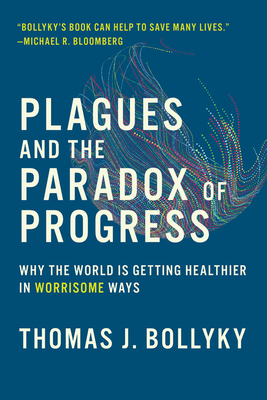Expedite your nonfiction book discovery process with Readara interviews, summaries and recommendations, Broaden your knowledge and gain insights from leading experts and scholars
In-depth, hour-long interviews with notable nonfiction authors, Gain new perspectives and ideas from the writer’s expertise and research, Valuable resource for readers and researchers
Optimize your book discovery process, Four-to eight-page summaries prepared by subject matter experts, Quickly review the book’s central messages and range of content
Books are handpicked covering a wide range of important categories and topics, Selected authors are subject experts, field professionals, or distinguished academics
Our editorial team includes books offering insights, unique views and researched-narratives in categories, Trade shows and book fairs, Book signings and in person author talks,Webinars and online events
Connect with editors and designers,Discover PR & marketing services providers, Source printers and related service providers

Plagues and the Paradox of Progress: Why the World Is Getting Healthier in Worrisome Ways
Medical > Health Care Delivery
- MIT Press
- Paperback
- 9780262537964
- 9 X 6.1 X 0.7 inches
- 0.88 pounds
- Medical > Health Care Delivery
- (Single Author) Asian American
- English
Readara.com
Book Description
Plagues and parasites have played a central role in world affairs, shaping the evolution of the modern state, the growth of cities, and the disparate fortunes of national economies. This book tells that story, but it is not about the resurgence of pestilence. It is the story of its decline. For the first time in recorded history, virus, bacteria, and other infectious diseases are not the leading cause of death or disability in any region of the world. People are living longer, and fewer mothers are giving birth to many children in the hopes that some might survive. And yet, the news is not all good. Recent reductions in infectious disease have not been accompanied by the same improvements in income, job opportunities, and governance that occurred with these changes in wealthier countries decades ago. There have also been unintended consequences. In this book, Thomas Bollyky explores the paradox in our fight against infectious disease: the world is getting healthier in ways that should make us worry.
Bollyky interweaves a grand historical narrative about the rise and fall of plagues in human societies with contemporary case studies of the consequences. Bollyky visits Dhaka--one of the most densely populated places on the planet--to show how low-cost health tools helped enable the phenomenon of poor world megacities. He visits China and Kenya to illustrate how dramatic declines in plagues have affected national economies. Bollyky traces the role of infectious disease in the migrations from Ireland before the potato famine and to Europe from Africa and elsewhere today.
Historic health achievements are remaking a world that is both worrisome and full of opportunities. Whether the peril or promise of that progress prevails, Bollyky explains, depends on what we do next.
A Council on Foreign Relations Book
Author Bio
Thomas J. Bollyky is director of the global health program and senior fellow for global health, economics, and development at the Council on Foreign Relations (CFR). He is also an adjunct professor of law at Georgetown University. Bollyky is the author of the book Plagues and the Paradox of Progress: Why the World is Getting Healthier in Worrisome Ways and the founder and managing editor of Think Global Health, an online magazine that examines the ways health shapes economies, societies, and everyday lives around the world.
Bollyky’s work has appeared in general interest publications such as the New York Times, Washington Post, and the Atlantic as well as scholarly journals such as Foreign Affairs, Science, the Lancet, the New England Journal of Medicine, and the Journal of the American Medical Association. Bollyky has testified multiple times before the U.S. Senate and served on three expert committees at the National Academies of Science, Engineering, and Medicine and as the co-chair of its workshop on globalization and international regulatory harmonization. He directed the first two CFR-sponsored Independent Task Forces devoted to global health: Improving Pandemic Preparedness: Lessons from COVID-19 (2020) and The Emerging Global Health Crisis: Noncommunicable Diseases in Low- and Middle-Income Countries (2014). Bollyky has been a consultant to the Bill & Melinda Gates Foundation and a temporary legal advisor to the World Health Organization. In 2013, the World Economic Forum named Bollyky as one of its global leaders under forty. Library Journal listed his book Plagues and the Paradox of Progress as one of the top ten selling health and medicine books in 2018.
Prior to coming to CFR, Bollyky served in a variety of positions in the U.S. government, most recently at the Office of the U.S. Trade Representative (USTR). He led the negotiations on medical technology regulation in the U.S.-Republic of Korea Free Trade Agreement and represented USTR in the negotiations with China on the safety of food and drug imports. Bollyky was a Fulbright scholar to South Africa, where he worked as a staff attorney at the AIDS Law Project, and an attorney at Debevoise & Plimpton LLP, where he represented clients before the International Court of Justice and the U.S. Supreme Court. Bollyky is a former law clerk to Chief Judge Edward R. Korman and was a health policy analyst at the U.S. Department of Health and Human Services.
Bollyky received his BA in biology and history at Columbia University and his JD at Stanford Law School, where he was the president of the Stanford Law & Policy Review. He is a member of the New York and U.S. Supreme Court bars.
Source: Council on Foreign Relations
Videos






Community reviews
No Community reviews

